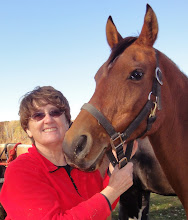John McCain is exploiting parents' fears about sex education in the schools. His ads claim that Barack Obama wants kindergarteners to learn about sex before they learn to read.
Obama wants no such thing. What he does want is to give kindergareten students information about good, bad, and secret sexual touches.
Who can possibily be against protecting children from sexual abuse?
McCain ignores the fact that children are learning about sexuality continually, from birth on. It is up to parents and those who are with children several hours a day to help children understand sexuality.
Sex Education in Schools is Controversial
McCain knows parents have fears about sex education in the schools. He is exploiting those fears.
Some parents are for school sex education. Some are against. Still others want to examine the curriculum to make sure it provides information about values, feelings, appropriate and inappropriate behaviors, anatomy, and physiology.
Begin in Preschool
When the program is solid, sex education can begin in preschool, with basic information that matches children's curiosity and developmental level, such as where children come from and the bodily differences and similarities between boys and sex. Sexual terminology could also be part of the teaching.
Parents as Partners
It would be ideal for parents to be part of the planning. Parents might even do the formal teaching.
As children become older, the information that schools provide, with parents' input, would continue to match their developmental level. For example, nine year-olds are often fascinated by sexual terms. A brief session on sexual terms and what they mean would be helpful at that age. Children may use sexual terms to bully and tease others.
Bullying
A brief session on these "bullying" terms that include what the terms mean and how the terms hurt other people would provide children with guidelines. This also will help make the classroom and the school grounds more safe for children. "Faggot," "whore," and "lessie" are terms that some children use to hurt and exclude others.
It's Not Okay to Hurt Others
By the eighth grade children need much guidance about sexual feelings. They also are ready to learn about which sexually behaviors are appropriate and which are not. Many children this age do not realize that grabbing butt, or genitals is not funny and that it hurts to be hurts to be the target of such behaviors. Many children will stop these behaviors when they realize this is inappropriate. If children continue, then the classroom teacher can refer them to the school social worker.
Honesty
Children this age and older benefit greatly when they have formal instruction about sexual respect and honesty. For example, it is not okay to tell someone you love them just so you can be sexual with them. It is not okay to touch someone sexually or try to have sex with them just because they have a reputation for being "easy."
Myths About Sex
By high school, children have learned a lot of myths about sex. Boys for example may believe that they have to prove their masculinity by being sexual with as many girls as possible. Some resort to tricks and manipulation just so they can tell their male friends about their sexual conquests.
Girls may be desperate to have a boyfriend and may become sexual before they are ready and before they know if the boy is just using them. Girls and boys need to know the difference between sex as commitment and love and sex as a means of getting pleasure or showing you are a grown-up.
Summary
Sexuality is an important part of life. Children require both formal and informal education about sexuality. The best situation is when schools partner with parents to develop humane and comprehensive programs. These programs would include formal instruction every school year for about four hours a year and much informal guidance about appropriate and inappropriate sexual behaviors.
Fiona Speaks is a pseudonym of Jane Gilgun, Ph.D., who is a professor, School of Social Work, University of Minnesota, Twin Cities, USA. This blog is a way for me to connect with people who like to talk about ideas and connect with what's important. To do this, I want to examine and demystify the blocks I see to building connections and community with other people. Join me.
Subscribe to:
Post Comments (Atom)
The blog is for witty people who want to build community. In this world that seems to be so full of witless efforts to self-aggrandize, I want to promote the simple idea of human connection.

No comments:
Post a Comment